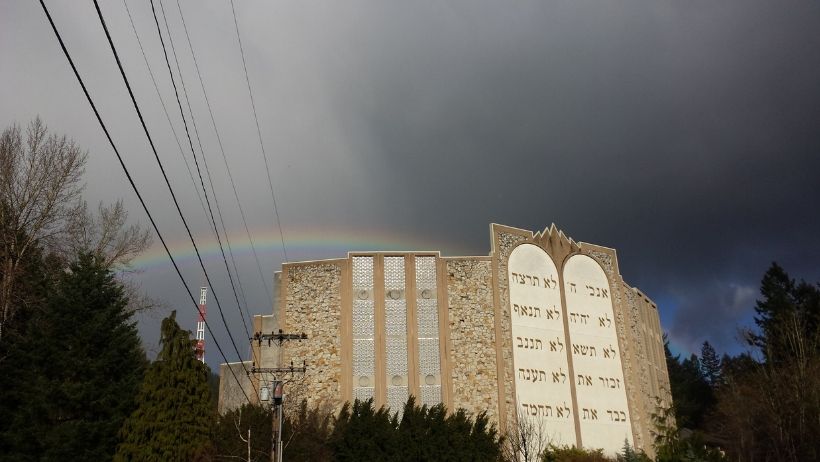One of the questions I’m asked most often when someone in another city hears that we live is Portland is, “How do you deal with the rain?” My usual response is a mix of humor (“At least it isn’t snow”) and honesty (“Yes, it rains a lot, but it’s not pouring constantly; there are plenty of breaks when you can still go outdoors”). Since moving to Portland, I have learned that there is no such thing as bad weather, there’s only inappropriate clothing. Now I know a good raincoat makes all the difference. I’ve also learned that rain is just water. If you’re not afraid to take a bath or shower, there’s no reason to be afraid of the rain.

Of course there are times when rain is inconvenient, like when it interferes with an outdoor birthday party at the park, a story hour at the farmers market, or a Shabbat service out on the plaza, which is rare, but can happen. However, rain is such a necessary part of our existence on the planet that we even have prayers asking God for rain in its time.
In our parshah this week, Bechukotai, the Israelite nation is receiving the final laws of the book of Vayikra, which detail specifically how we should treat one another in various relationships and how we should connect to God. The Israelites have only been out of Egypt for a short period of time, and during this first taste of freedom, they are in their stubborn and rebellious adolescent years.
The text begins with the promise that if these rules are followed, rain will be granted in its season. Today, it doesn’t sound like much of a reward. Hey, good news! Keep all of the mitzvot, and you will get . . . rain. Living in an agrarian society, as the Israelites did, this was important. In our world today, the intention and implication might be a little different.
There’s a midrash in Leviticus Rabbah which takes the idea of the “appropriate season” to mean that God will make it rain only at times convenient for the people, like on Friday nights when most people are at home and no one is traveling. Again, this makes more sense for a different era, in which the agricultural calendar was the basis for everything, and there wasn’t much fluctuation year over year. These days, schedules are made by any number of things – school, work, NBA playoffs, etc.
Perhaps the part we can actually relate to is the promise of sustenance. The parshah reminds us that when we take care of the land, take care of each other, and take care of our relationship with God, we are much closer to achieving a world in balance. And a balanced world is the kind of reward we can all get behind.



